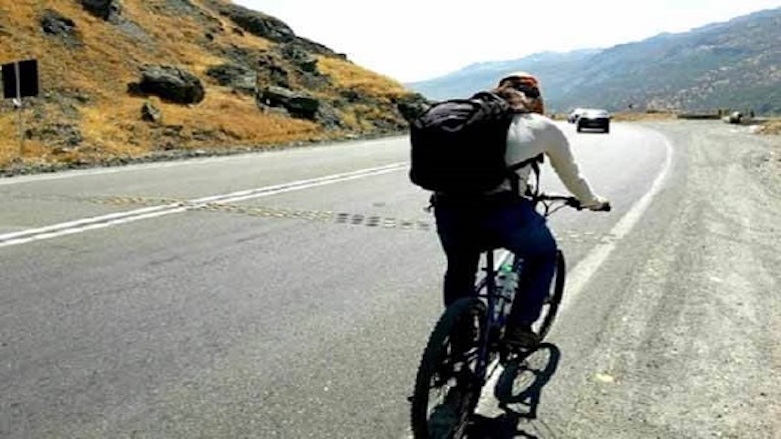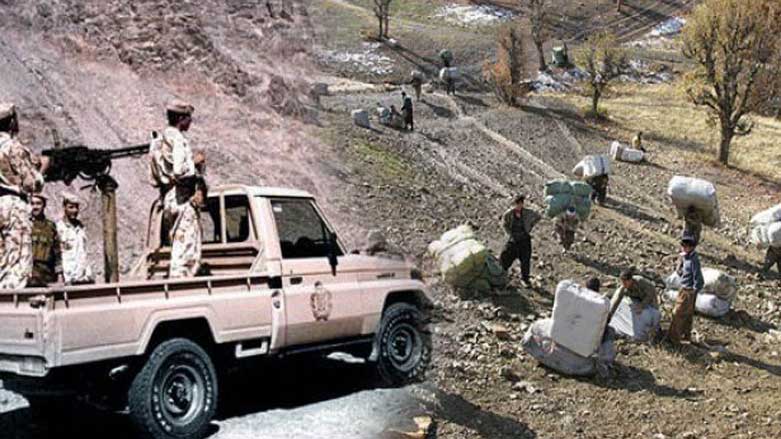Kurdish man on hunger strike bikes to capital to protest Kulbar killing

TEHRAN, Iran (Kurdistan 24) – A young Kurd on a hunger strike cycled from Mariwan to Tehran to protest the unaccountable and continuous killing of Kurdish border couriers known as Kulbar.
Civil rights activist Sharif Bajour paddled for four days with the slogan: “Non-violence is the path to victory for humanity.”
On Friday, he was received by other activists at Tehran’s famous Azadi monument.
Bajour resides at the home of imprisoned unionist Reza Shahabi, where he ended his hunger strike.
The Kurdish term “Kulbar” consists of “kul” meaning back and “bar” meaning carrying. “Kulbaran” is the plural form.
Finding no other means to earn a living, Kulbaran climb impassable roads for long hours, sometimes days, across the Iran-Iraq borders, while carrying goods such as tobacco and tea to make as little as $10 a day.
Shooting unarmed border couriers is a violation of Iran’s laws as well as international laws. However, hundreds of Kulbar lose their lives every year at the hands of border guards.
When Iranian border guards killed Ghader Bahrami, 41, father of four, and Heydar Faraji, 22, Kurds in different cities across Iran took to the streets to protest the killings, asking that perpetrators be brought to justice.
Iranian officials detained several people, firing tear gas and plastic bullets at peaceful protesters, but also promised to investigate the matter.
Lawyer Sara Mohamadi told Kurdistan 24 Iranian laws dictate that the border guards can fire their weapon only if they believe the trespasser is armed and dangerous, but “must never shoot to kill.”
“There are also specific steps they must follow: first, an oral warning, second, by shooting into the air, and third, targeting the lower body if they must fire,” Mohamadi said, speaking on the phone.
She said crossing borders without paying tariff is breaking the law, but Iran’s handling of legal cases in Kurdistan and Baluchistan is very different from the rest of the country where the judicial system is tainted by perceiving these minorities as a threat to “territorial integrity.”
Mohammadi, who has represented several Kulbar families in Iran, said none of her cases were ever received fairly in a court of law.
However, she mentioned her colleagues in other parts of Iran have been able to receive compensation for some of their clients.
“Even in rare cases when fair judges rule that the families of dead border couriers can receive compensation, the money is paid by the government,” the Kurdish lawyer said.
“It is unheard of that a border guard be questioned for killing a human,” she added.
A United Nations’ report on the situation of human rights in Iran stated the arbitrary killing of the unarmed Kulbar is “in violation of Iran’s domestic laws and international obligations.”
Iran responded to the UN’s concerns stating, “It is very difficult to distinguish drug traffickers and armed bandits from real [Kulbar] at [the] borders.”
Editing by Karzan Sulaivany

